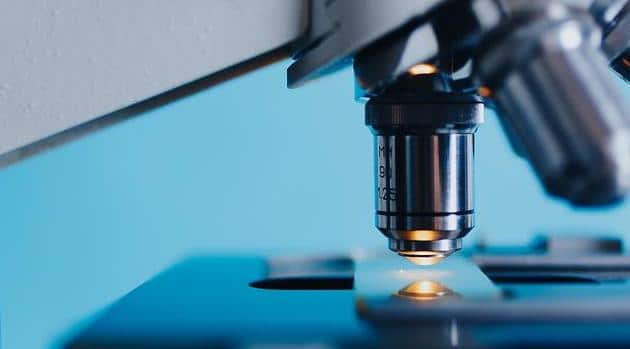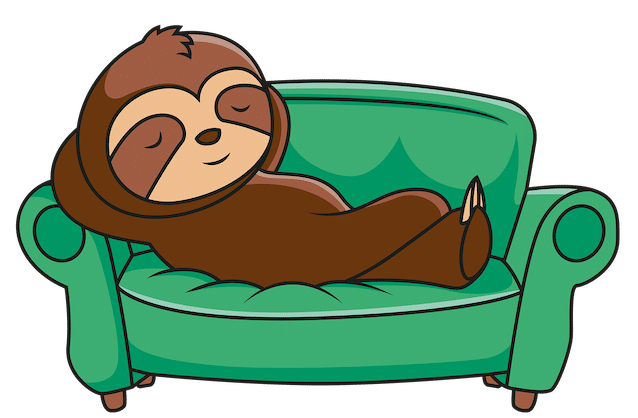Earlier this year while listening to podcasts about sleep and insomnia, I stumbled upon the neuroscientist Andrew Huberman of the “Huberman Lab” podcast who discussed melatonin with Matthew Walker (sleep neuroscientist).
While discussing melatonin, Huberman stated that he personally avoids it in part due to studies showing that melatonin significantly shrinks testicles and ovaries of seasonally-breeding animals.
The logic goes as follows: (A) if melatonin is capable of shrinking animal testicles then (B) melatonin might shrink human testicles or substantially alter hormonal activity substantially – perhaps in detrimental ways.
Huberman & Walker melatonin conversation (R)
Included below is a specific subsection of the podcast “The Science & Practice of Perfecting Your Sleep” from the Huberman Lab Podcast #31.

Andrew Huberman (neuroscientist) and Matthew Walker (sleep scientist) discuss exogenous melatonin supplementation.
Andrew Huberman:
“One thing I’m concerned about – about these supraphysiological levels of melatonin is that many years ago, actually, here at Berkeley, when I was a graduate student we would inject animals (which were seasonally breeding animals) with melatonin.
And the consequences of that was that their gonads (either testes or ovaries) would shrink many hundred fold or more.
In other words, they would go from having nice healthy sized hamster testicles (what a hamster would consider healthy size for a hamster) and they would shrink to the size of a grain of rice. So from like an almonds to a grain size of a grain of rice.
I had to see that only once for me to be very concerned about supraphysiological levels of melatonin. And I realize that melatonin does different things in different species.
We are not hamsters. We are not seasonal breeders (seasonally restricted breeders) there might be more breeding during different seasons, I don’t know.
But nonetheless, hormones are powerful. And sure there is an optimal – and sometimes we see that going slightly above endogenous levels for certain hormones, not always, can have beneficial effects – and sometimes it can have detrimental effects.
I’m just concerned about taking high levels of a hormone that has effects on the reproductive axis and that’s one of the reasons why I get very concerned when I see people really getting aggressive about melatonin supplementation – taking 100, 10, 500, sometimes even 10,000 times the amount we would normally release.
That’s my concern although it’s not necessarily nested in any one specific human study.
I just don’t like to see – I don’t like to see other people and I don’t want to personally take a hormone that’s known to be androgen suppressive at high levels.
Why would I take that? That’s the question I ask myself.”
Matthew Walker
“I think it’s a very, you know, good point. And if you look at some of the evidence around, you know, melatonin’s lethality if you want to go to that extreme, for the most part, you know, it’s pretty safe.”
Melatonin shrinks testicles & ovaries (gonads) in birds (Research)
Included below are studies suggesting that melatonin is capable of shrinking gonads of birds and/or significantly influencing hormone profiles in ways that could shrink testicles.

I believe some of the studies listed below may have been what Andrew Huberman was referring to regarding his involvement in melatonin research.
2010: Melatonin stimulates the release of gonadotropin-inhibitory hormone by the avian hypothalamus (R)
Chowdry et al.
- Melatonin administration dose-dependently increases GnIH release from hypothalamic explants in vitro.
- Results suggest that melatonin influences GnIH expression and release – which inhibits plasma luteinizing hormone (LH) concentration in quail.
2005: Melatonin induces the expression of gonadotropin-inhibitory hormone in the avian brain (R)
Ubuka et al.
- Researchers found that melatonin originating from the pineal gland and eyes induces GnIH expression in the quail brain.
- Melatonin administration to quails after pinealectomy (Px) combined with orbital enucleation (Ex) caused dose-dependent increases in GnIH precursor mRNA and production of mature peptide.
- Melatonin radiography revealed specific binding of melatonin within the paraventricular nucleus (PVN).
- Results indicated that melatonin is critical for the induction of GnIH expression in Japanese quail.
Note: This study inspired a EurekAlert! article entitled “Melatonin shrinks bird gonads. What does the popular supplement do to humans?”
1999: Seasonal neuroplasticity in the songbird telencephalon: A role for melatonin (R)
Bentley et al.
- Neuroplasticity in the vocal control system of songbirds is influenced significantly by seasonal fluctuations in circulating testosterone.
- Researchers found that administration of high-dose melatonin fine tunes the effect of testosterone on the song system of songbirds.
1987: Effect of melatonin on gonads, body weight, and LH of the Indian Finch (R)
Gupta et al.
- 4 doses of melatonin administered over 30 days in separate groups of adult male Indian Finch during mid-day and mid-night in the “late progressive phase” (August).
- Melatonin regardless of dose and time of administration induced complete inhibition of seasonal gonadal growth and activity.
- Melatonin also decreased body weight and inhibited thyroid activity – via a hypothalamic regional complex.
How does melatonin shrink testicles & ovaries in birds? (Mechanism)
Gonadotropin-inhibitory hormone (GnIH) is a neurohormone that inhibits gonadotropin synthesis and release and was first identified in the quail hypothalamus.

In quail brains, melatonin receptors are expressed by gonadotropin-inhibitory hormone (GnIH) neurons located within the paraventricular nucleus (PVN) of the hypothalamus.
Gonadotropin-inhibitory hormone (GnIH) acts on the pituitary and gonadotropin-releasing hormone (GnRH) neurons located within the hypothalamus by way of gonadotropin-inhibitory hormone receptors (GnIHRs).
In other words, when GnIH concentrations are high the production of GnRH gets switched off.
Predictably, the administration of exogenous melatonin activates melatonin receptors expressed by GnIH neurons in the PVN and dose-dependently inhibits the synthesis and release of GnRH.
Switching off gonadotropin-releasing hormone (GnRH) from administration of exogenous melatonin inhibits the development and maintenance of gonads (testes & ovaries) in quails – and thus affects reproductive cycles/potential.
Other animal studies (melatonin vs. gonadotropin)
Results of studies involving other animals such as: zebrafish, rats, mice, mink, etc. have reported mixed results regarding the effect of melatonin on GnIH/GnRH.
In other words, there’s no clear evidence to suggest that melatonin universally increases GnIH while decreasing GnRH in animal models.
For this reason, even if we were to extrapolate animal data to humans (which shouldn’t be done) – there is no consistent effect to be extrapolated.
- Zebrafish: Melatonin dose-dependently inhibits GnIH in the brain-pituitary-reproductive axis of zebrafish in response to photic conditions. (R)
- Cholestatic rats: Melatonin inhibits hypothalamic GnRH in cholestatic rats. (R)
- Mouse: GnRH drives melatonin receptor downregulation in the developing pituitary gland of mice. (R)
- Female rats: GnRH increases melatonin release in the pineal of female rats. (R)
- Neonatal rat gonadotropes: Melatonin has both inhibitory and potentiating effects on GnRH-related signaling. (R)
- Maturing rats: Melatonin does not modify the pituitary responsiveness to GnRH in sexually maturing rats relative to control rats (no melatonin). (R)
- Male mink: GnRH was inhibited within 2 weeks of melatonin capsule implantation. (R)
What do animal studies of melatonin mean for human gonads (testicles & ovaries)?
Nothing. Although animals and humans have many things in common – and certain drugs and hormones exhibit cross-species effects, others do not.

If we want to do a bird comparison (since melatonin primarily shrank bird testicles) – substances like chocolate, apple seeds, alcohol, avocados, mushrooms, caffeine, and onions can cause significant health issues in birds and even death.
However, these same substances are enjoyed by many humans on a daily basis without significant health issues – and many humans find them health-enhancing.
Though the comparison is clearly suboptimal given the fact that both birds and humans secrete melatonin endogenously, this comparison illustrates the idea that substances don’t have identical effects across species.
Why animal studies are poor predictors of human reactions…
A review published in 2006 analyzed studies where medical interventions were tested on animals and determined whether results were replicated in humans.
It found that of the most-cited animal studies in top scientific journals (e.g. Nature & Cell) – only 37% were replicated in subsequent human randomized controlled trials and 18% were contradicted in human trials. (R)
A different review (2007) found that treatment effects from 6 medical treatments in humans and animals was similar in only half of the treatments – the other treatments had different outcomes. (R)
- Similar reactions: There are some animal studies that do predict human reactions including: penicillin protecting from infection (mice and humans) and isotretinoin (Acutane) causing birth defects (rabbits, monkeys, humans).
- Different reactions: Corticosteroids are commonly teratogenic (disturbing embryo/fetus development) in animals but not humans whereas thalidomide is not teratogenic in most animal species but is in humans.
A paper by Akhtar (2015) highlights 3 key reasons animal research doesn’t translate to humans (R):
- Interspecies differences in physiology & genetics
- Discordance between human diseases & animal models
- Influence of lab procedures & environments on experimental results
But animal studies tho! Melatonin shrinks animal gonads…
Animal studies are generally useful for preliminary research and forming hypotheses – but clearly don’t always translate well from animals to humans.
Sometimes the effects of a drug/hormone are: (1) the same; (2) similar but not the same; (3) different; (4) the opposite – between certain animal species and humans.
Keep in mind that effects of a drug that may be shared by certain animals and humans (e.g. rabbits and humans) may not be shared by other animals and humans (e.g. birds and mice).
For this reason, we should probably pump the brakes before assuming that melatonin shrinks human gonads (testes/ovaries).
Does melatonin supplementation affect human gonad size (testes & ovaries)?
Unknown. There is currently zero evidence to support the idea that melatonin supplementation affects human gonads (testes & ovaries).
In other words, there are no data from human studies to substantiate the hypothesis that melatonin shrinks human testicles and ovaries – even with high-dose and/or long-term administration.
Obviously we should not automatically assume that a lack of evidence means no effect occurs – as this specific effect probably hasn’t been studied in humans.
However, melatonin has been thoroughly studied in pediatrics (i.e. children & adolescents) and adults (ages 18+) – and there is zero strong evidence to suggest that melatonin affects: puberty; growth; hormone profiles; and mental status.
Melatonin & growth, puberty development (Humans)
Malow et al. (2021) (R)
- 80 children and adolescents (2-17.5 years of age) with autism and insomnia were given melatonin (2 mg, 5 mg, or 10 mg) for 104 weeks (2 years).
- Nightly melatonin (2 mg, 5 mg, 10 mg) had no detrimental effects on children’s growth and pubertal development.
Mantle et al. (2020) (R)
- 19 RCTs with 841 children & adolescents with DSPD found that melatonin treatment consistently improves sleep latency without adverse effects.
- 17 RCTs with 1374 children & adolescents using melatonin for conditions other than DSPD found that melatonin causes no adverse effects.
- 4 long-term safety studies (1 to 10.8 years) reported exogenous melatonin supplementation did not affect puberty development and mental health of children.
Zwart et al. (2018) (R)
- 9 children used melatonin after an average duration of 10.8 years.
- Melatonin users exhibit sleep quality that does not differ from controls of the same age.
- Perceived timing of pubertal development suggested a tendency towards delayed puberty in former users of melatonin
- Perceived timing delays do not indicate actual timing delays – and this study had a very small sample size.
- Even if delayed puberty does occur from melatonin, this does NOT automatically indicate suboptimal gonad (testicle/ovary) development.
van Geijlswijk et al. (2011) (R)
- 51 children used melatonin for an average of 3.1 years (range: 1 to 4.6 years).
- Average melatonin dose was 2.69 mg per night (range: 0.3 to 10 mg).
- Melatonin treatment in children was sustainable over a long-term with no deviation in puberty development or mental health scores.
Note: It’s possible that the doses of melatonin taken in these studies were closer to a physiologically normative level (i.e. what’s endogenously secreted) than a supraphysiological level – and this might explain its lack of observed effect on puberty/growth.
Melatonin & hormones (humans)
The relationship between exogenous melatonin supplementation and sex hormones in humans may be dose-dependent and sex-specific.
However, there’s no evidence that melatonin significantly alters any sex hormones in humans.
Androgens
Supplementation of 6 mg melatonin per night for a month did not significantly alter testosterone levels, luteinizing hormone levels, or follicle stimulating hormone levels in healthy men. (R)
Melatonin may actually counteract testosterone reductions associated with exercise – indicating that melatonin might prevent low T in certain scenarios. (R)
Growth hormone
Melatonin appears to acutely stimulate growth hormone secretion in healthy men at rest. (R)
Estrogen
Melatonin had no significant effect on concentrations of circulating estrogens after 4 months of nightly administration in 95 women prior to sleep. (R)
What about gonadotropin-releasing hormone (GnRH)?
At this time there’s no evidence to suggest that exogenous melatonin significantly alters the concentrations of gonadotropin-releasing hormone (GnRH) in humans.
However, even if melatonin alters the concentrations of gonadotropin-releasing hormones in humans – it is unclear as to whether the effect is enough to cause significant gonadal shrinkage and/or interference with gonadal development.
Boafo et al. (2019) published a paper hypothesizing various effects of melatonin on puberty – and discussed how we could investigate the potential effects of melatonin on pubertal timing and gonadotropin releasing hormone. (R)
Boczek-Leszczyk & Juszczak (2007) speculated that melatonin could impact human reproduction. (R)
- Decreased secretion of melatonin which coexists with increased fertility in the summer is specific for women living on the north hemisphere.
- Abnormal levels of melatonin in the blood are associated with several disorders of the hypothalamic-pituitary-gonadal axis (e.g. precocious or delayed puberty, hypogonadism, amenorrhea).
- Melatonin binding sites have been demonstrated in the CNS (pars dystalis of the pituitary and hypothalamic suprachiasmatic nucleus) and reproductive organs (granulosa cells, prostate, spermatozoa).
- Melatonin may influence gonadal function indirectly via its effect on GnRH and/or gonadotropin secretion OR directly (some evidence suggests melatonin can be synthesized in gonads).
Researchers suggest that lower levels of melatonin may increase fertility via numerous mechanisms such as: the HPG axis, CNS, and reproductive organs.
Therefore, increased melatonin might decrease fertility via opposing mechanisms.
However, researchers did NOT directly evaluate the effects of melatonin in humans – they merely formed a hypothesis regarding melatonin and human reproduction (which didn’t specifically mention the idea of gonadal shrinkage).
One issue with Huberman & Walker’s discussion of exogenous melatonin
Though I don’t listen to podcasts often, I enjoy the Huberman Lab Podcast and think that both Andrew Huberman and Matthew Walker are extremely intelligent people.
However, I have some issues with the analogies that were made to melatonin supplementation by both Huberman and Walker.
I understand why these analogies were made (to help people conceptualize the idea that increasing levels of a hormone with exogenous supplements to achieve a supraphysiological level could be harmful).
Comparisons to food & testosterone
Melatonin supplements contain significantly higher levels of melatonin than are secreted endogenously within the body (sometimes up to 300-fold the amount).
For this reason, Walker and Huberman suggested that we imagine increasing: food intake (20-fold) and testosterone levels (300-fold) – our baseline/homeostatic levels.
Food intake analogy
Walker suggested to imagine eating 20 times the amount of food we normally eat – and the effect this would have on our body.
- This may cause significant fat gain and disease over a long-term as a result of the excessive body fat gain.
- This may also cause significant discomfort likely with digestion and probably affect cognition and energy levels.
- I assume Walker is referring strictly to 20 times the calories and not the volume of food (as increasing volume by eating more vegetables could increase the total volume significantly without increasing the calories – or perhaps even decreasing calories).
- That said, if we ramped up our energy expenditure by 20-fold by taking up some intense workout (e.g. distance running) this effect could be offset.
- Another reason I dislike the comparison here is because food is not an endogenously generated neurohormone.
- The main reason this comparison is inappropriate is because food is not the same as melatonin – thus the comparison is an obvious “false equivalence.”
Testosterone analogy
Huberman discussed the idea of administering exogenous testosterone to 300 times the normal amount in humans and imagining the effects/outcome.
- This comparison is a bit more appropriate in that both melatonin and testosterone are endogenously generated hormones within the body.
- However, comparing melatonin to other endogenous hormones is generally pointless because they have significantly different physiological effects.
- Testosterone regulates libido, bone mass, fat distribution, muscle/strength, and the production of red blood cells and sperm – whereas melatonin primarily regulates circadian rhythms.
- Additionally, while melatonin has zero known LD50 (lethal dose) in humans – testosterone has an LD50 that ranges from 500-1000 mg/kg/bw.
- In other words, because these are drastically different hormones – administering mega-doses of one might be completely safe (which appears to be the case with melatonin) – yet administering mega-doses of the other might be unsafe (which appears to be the case with testosterone).
Huberman admitted that as soon as he saw exogenous melatonin significantly shrank the gonads of seasonally-breeding animals – he couldn’t be convinced to use it as a supplement.
He added that he understands humans are not seasonally-breeding birds.
However, he believes this was reason enough to be cautious of administering supraphysiologic levels of any hormone – which is certainly reasonable.
After all, the full scope of melatonin’s effects in humans may not be known – such that if one’s goal is to avoid potential adverse effects like gonad shrinkage, it may be best to avoid supraphysiological supplementation – particularly over a long-term.
Who should be most cautious with melatonin?
Pediatrics. Children and adolescents should probably be more cautious with the use of melatonin given the fact that they haven’t completed pubertal development and growth.
If melatonin does somehow delay and/or interfere with pubertal development or aspects of growth – then it’s possible it could adversely affect gonad development (testicles & ovaries).
Fully-developed adults who’ve completed puberty likely don’t need to worry about melatonin supplementation reversing puberty-induced testicular/ovary growth.
Although it’s possible that melatonin could somehow induce a transient or modest shrinkage in testicles and/or ovaries in adults – there is currently no evidence to support this hypothesis.
Lack of sleep shrinks men’s testicles?
In his TED Talk, Matthew Walker (sleep scientist) states:
“Men who sleep 5 hours a night have significantly smaller testicles than those who sleep 7 hours or more.”
The quote from Walker likely is based on a study by Zhang et al. (2018) in which sleep duration was associated with testicle size in healthy young men.
In this study, there was a positive linear relationship between sleep duration and testicular volume in 92 healthy men (age: ~33 years). (R)
Therefore, one might speculate that: (A) if melatonin supplementation helps you get more high-quality sleep (relative to zero melatonin), then (B) it may actually increase testicle size – or prevent shrinkage (rather than decrease it).
Or perhaps a size-reducing effect of melatonin on testicles would be offset by the improvement in sleep duration/quality (associated with greater testicular volume).
However, even if melatonin has no significant impact on testicle size – if it helps you get more and/or higher quality sleep than you would without it – it’s probably smart to continue using it (as poor sleep quality is a force-multiplier for increased health problems).
Should you take melatonin for sleep?
This is a personal choice. If you need help deciding whether to take melatonin – consult a medical doctor.

Melatonin is commonly used for the treatment of primary insomnia, age-related insomnia, jet lag, shift work sleep disorder, and various neurodegenerative disorders. (R)
According to NIH (National Institute of Health) research, the use of melatonin supplements by adults in the U.S. more than quintupled between 1999 and 2018. (R)
If a medical doctor recommended that you use melatonin for the treatment of insomnia and/or another circadian rhythm disorder – it’s recommended to follow this advice.
If you subjectively find melatonin supplementation helpful for enhancement of sleep duration and/or quality – or for another medical condition, I’d probably keep using it unless medically contraindicated.
If you don’t need melatonin to sleep well or find it relatively useless – then don’t use it… pretty simple.
How to minimize odds of melatonin shrinking gonads… (Hypotheticals)
This assumes melatonin actually can shrink gonads in the first place.
Physiologic dose
Most experts and scientists (e.g. Andrew Huberman) are concerned primarily with supraphysiological doses of melatonin (far beyond what the body endogenously produces) – not physiologic doses.
Physiologic doses provide a level of melatonin that is relatively consistent with what the body typically produces – such that adverse events are unlikely to occur.
The ideal physiologic dose is around 300 micrograms (0.3 mg) – but some researchers classify any dose 1 mg or below as physiologic.
Minimal effective dose
Use the lowest necessary dose to achieve beneficial effects on sleep – and no more than this amount.
Melatonin doesn’t cause “tolerance” like other psychoactive drugs so the dosage should be effective indefinitely.
If it feels like the dose isn’t working – it’s probably not the melatonin rather some other lifestyle factor contributing to its lack of effect (e.g. too much caffeine, high stress, etc.).
Avoid before adulthood
Pediatrics (kids & teens) should probably avoid melatonin supplementation unless deemed medically necessary.
Why? On the off chance that it does interfere with pubertal development in some capacity – you’ll be safe.
Use a quality supplement
Preferably from a manufacturer with high quality-control standards – as many melatonin supplements don’t actually contain the amount of melatonin listed on the label and/or may include other unwanted psychoactive components.
You want to be sure that you’re getting the dosage listed on the supplement.
Look for “USP-certified” or consider a supplement company that batch-tests each melatonin product for label accuracy.
Should you stop using melatonin to avoid testicle & ovary shrinkage?
If you’re a person that consistently derives significant benefit from the administration of exogenous melatonin for sleep – there’s no need to discontinue this practice unless medically necessary.
In fact, most evidence suggests that melatonin is likely to have long-term health benefits in terms of sleep quality, circadian regulation, and immune function – and there’s no evidence to suggest that melatonin affects gonad size in humans.
There are hypotheses from various researchers suggesting that melatonin could delay puberty if administered in pediatrics, however, none of the long-term studies (some of which involved melatonin use up to 10 years) support this hypothesis.
Worrying about potential gonad (i.e. testicles or ovaries) shrinkage because you read a study involving Japanese quail, some other animal, or Andrew Huberman discussing this on a podcast is relatively meaningless at this point.
That said, pediatrics (i.e. non-adults) who haven’t completed puberty may want to be more cautious with melatonin supplementation if concerned about its hypothetical [unconfirmed] impact on puberty and gonad development.
Moreover, as a general precaution, it may be best to use a minimal effective dose of melatonin (ideally within a physiologic range such as 0.3-1 mg rather than supraphysiologic range such as 5-20 mg).
Closing thoughts on melatonin & gonads
- Melatonin supplementation may shrink gonads in humans. (No evidence for this).
- Melatonin supplementation might have no significant effect on gonad size of humans. (Current evidence).
- Melatonin supplementation might increase gonad size in humans. (No evidence for this).
At this point we really don’t know with 100% certainty whether melatonin affects gonad size in humans.
Just because exogenous melatonin reduces gonad size in animals (e.g. seasonally-breeding birds) does NOT mean that it has the same effect in humans.
Additionally, we must consider the fact that certain substances affect certain animals differently than humans and other animals – such that melatonin might even increase gonad size in humans.
Currently there’s no evidence supporting the idea that melatonin supplementation (even at supraphysiologic levels) impacts human gonad size.
If melatonin supplementation does alter human gonad size, things like: age, regularity of supplementation, dose, genetics, use of other substances, etc. – probably influence the magnitude of this effect.